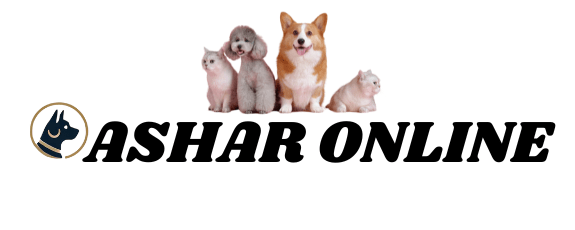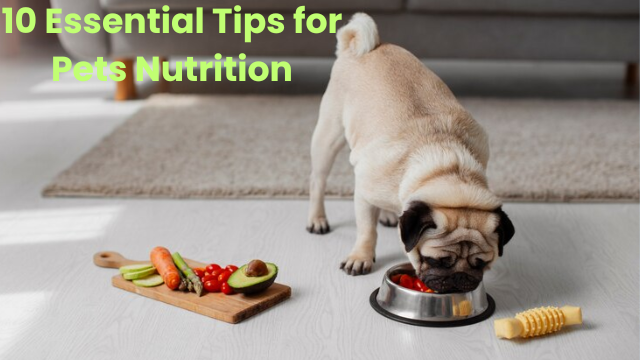Provide nutritious meals to support your pets’ well-being. Knowing what to feed them can make a big difference. By following this approach, you can ensure your pets get the healthiest diet. This will help them have long, happy lives. This article covers everything. It goes from the basics of diet parts to the details of feeding advice for cats and dogs pets nutrition.
Food Requirements for Dogs and Cats
Essential Nutritional Elements
Different nutrients are necessary for pets to remain healthy. The principal elements consist of:
- Proteins: Essential to development and repair.
- Fats: Promote cell function and provide energy.
- Carbohydrates: Provide immediate energy.
- Minerals and vitamins: Necessary for many body processes.
- Water: The most important pets nutrition. It aids digestion and regulates body temperature.
For your pets to be healthy, you must ensure they get a balanced mix of essential pets nutrition.
Dog Feeding Guidelines
Because they are omnivores by nature, dogs have special dietary requirements. The following advice will help you feed your dog.
- A well-balanced diet: Must have a variety of carbohydrates, fats, and proteins.
- Raw vs. Cooked Food: Compare the benefits and drawbacks of each.
- Life-Stage Nutrition: The nutritional requirements of puppies, adult dogs, and senior dogs vary.
Planning a dog’s diet should always take their age, size, and activity level into consideration.
Guidelines for Cat Feeding
Due to their compulsive carnivorous nature, cats need a diet rich in meat. The following are important points:
- High-Protein Diet: Cats must eat modest amounts of fat and a high-protein diet.
- Avoid Carbohydrates: Cats don’t need carbohydrates in their diet.
- Taurine: An important amino acid necessary for healthy heart and vision.
Make sure the food your cat eats is like what it would consume in the wild.
Selecting Proper Pet Food
Choosing the ideal food for your pet might be difficult. Observe the following:
- Recognize and comprehend pet food labels.
- AAFCO Nutritional Guidelines: Ensure the food meets these standards.
- Ingredients to Look For: Complete foods and high-quality proteins.
- Special Dietary Needs: Consider any health issues your pet may have.
Look into and choose foods that complement the lifestyle and overall health of your pet.
Common Myths and Misconceptions
Myths regarding pets nutrition abound. The following are a few refuted:
- Raw Diets for Pets: Understand the advantages and disadvantages.
- Grain-Free Diets: Not required for all pets.
- Hazardous Human Foods: Some human foods may be poisonous to pets.
Learn enough so that you can decide on your pets nutrition with knowledge.
Feeding Procedures
Proper feeding techniques ensure your pet gets the right amount of nourishment:
- How Much Is Enough?: Based on weight, age, and activity level.
- Feeding Frequency: Puppies and kittens need more frequent meals than adults.
- Monitoring and Modifying Diet: Regularly assess your pet’s weight and health.
Adjust their diet as necessary to maintain optimal health.
Particular Points to Remember
Some pets require specific diets:
- Breed-Specific Needs: Some breeds have specific dietary requirements.
- Health Issues: Pets with allergies or chronic conditions need special diets.
- Active Pets: High-energy pets may need more calories and nutrients.
Consult your vet for personalized advice.
In summary
A long, healthy life is dependent upon proper pet nutrition. For personalized advice, ask a veterinarian. Also, keep a close eye on your pet’s health. A healthy, balanced diet will help your pet thrive. It will also help them avoid many health issues.
FAQs
Do pets nutrition actually exist?
Yes, specialists with training in animal nutrition are pets nutritionists. They aid in the formulation of a balanced diet for pets.
In America, who owns pets nutrition?
The Wood family, who have been producing pet food for many years, owns American Pets Nutrition.
What degree does pet nutrition fall under?
Animal science or veterinary nutrition covers pet nutrition. These programs address animal health and nutrition.
Which dog food has the most nutritional value?
A meal that satisfies AAFCO criteria has a lot of protein. It maintains balance. It is the best for dogs. For specific recommendations, speak with your veterinarian.
What dietary concerns do pet owners have for their animals?
People often worry about a balanced diet. They also worry about handling allergies and choosing the right food. The options are dry, moist, or raw.
What nutritional information should pet owners be aware of?
Pet owners must understand nutrition basics. They need to learn to read pet food labels. They also need to know their pet’s specific age and breed needs.
What is the ideal diet for pets?
The best pet diet has lean proteins and good fats. It has few carbohydrates and vital vitamins and minerals. Moreover, it meets the specific needs of the pet’s health and life stage.
Which pet food is the greatest for getting the most nutrients?
Good pet food is well-balanced. It follows AAFCO guidelines. It tailors to the health needs of the animal. It’s common to recommend brands like Royal Canin and Hill’s Science Diet.
Where can I buy pet nutrition supplements under a white label?
Makers and suppliers create the supplements. They are for pets and sold under a white label. They specialize. Many solutions are now available on websites like Amazon and Chewy.

